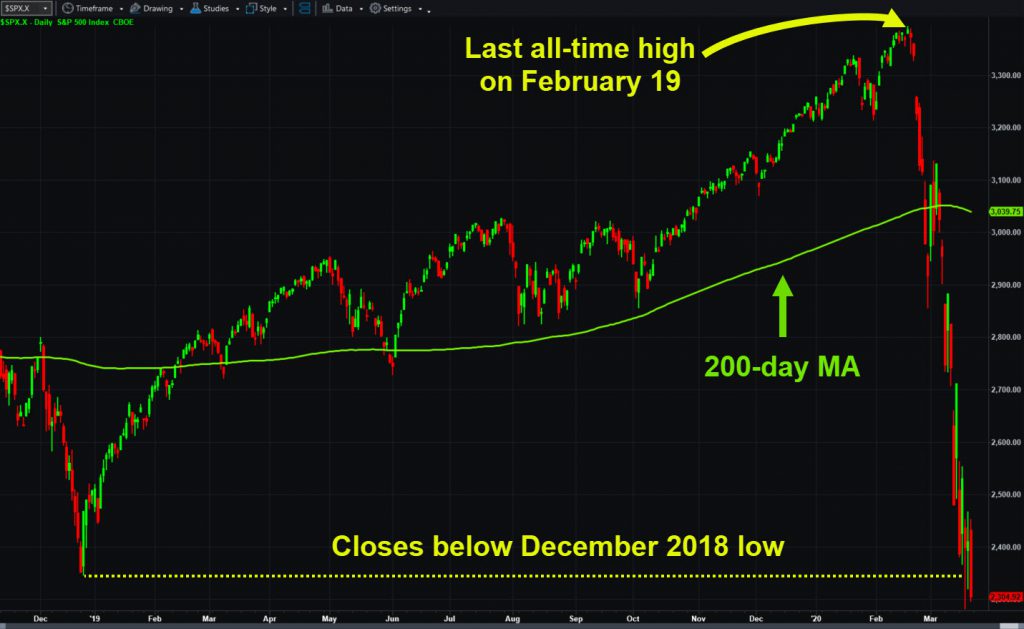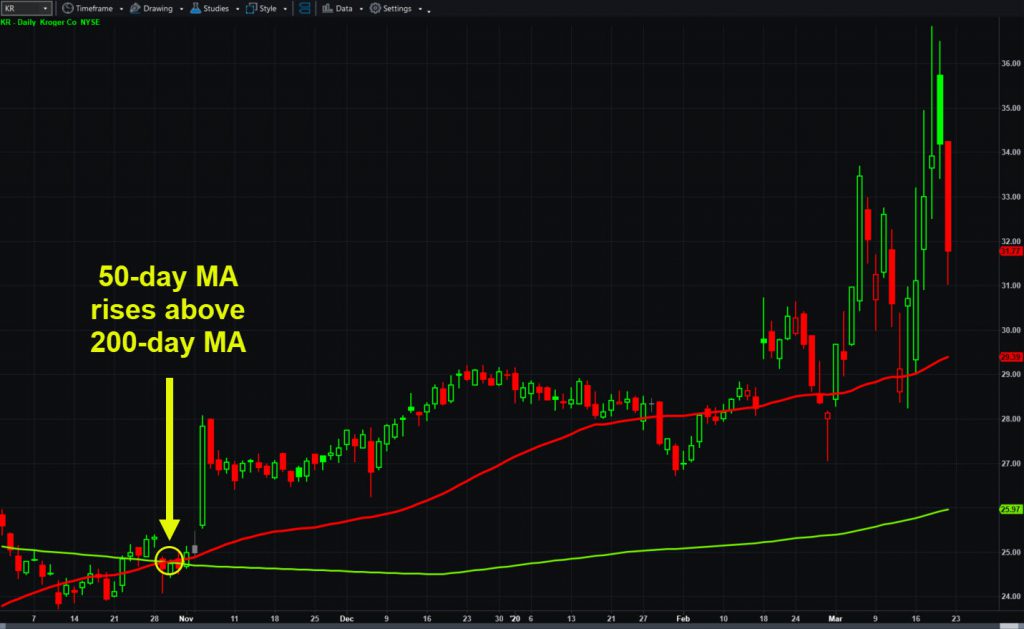The stock market’s slide worsened last week as coronavirus forced a broad shutdown of the U.S. economy.
The S&P 500 declined 15 percent between Friday, March 13, and Friday, March 20. It was the biggest weekly drop since the 2008 financial crisis. Less than 1/20 of the index’s members managed to advance.
Even worse, the S&P 500 closed below its December 2018 low of 2347. That was its clearest line of support and leaves potential buyers unsure where to step in.
Covid-19 Sweeps Economy
While the stock market anticipated the impact of coronavirus in late February, last week it became real for ordinary people. New York City shut down restaurants and cancelled the St. Patrick’s Day parade. Europe closed its borders and California told citizens to remain in their homes.

The outbreak also appeared starkly in the economic data. Jobless claims increased more than expected to their highest in 2-1/2 years. Manufacturing surveys in New York and Philadelphia turned sharply negative after surprisingly good readings the month before.
The question now isn’t whether there will be a recession. Instead, we’re asking how deep it will be and how many Americans will lose their jobs.
Every Sector Fell Last Week
Every sector and industry group, aside from gold miners, declined last week. Real-estate investment trusts led the carnage with a drop of more than 20 percent. Energy stocks also continued to hit new lows as oil fell to the low $20s. It was above $50 just a few weeks ago.
Another theme was selling in consumer-related stocks across various sectors. These were the three biggest losers in the S&P 500:
- Discover Financial Services (DFS): The credit-card issuer plunged 51 percent. Delinquencies will almost certainly rise as workers lose their jobs.
- Simon Property Group (SPG): The shopping-mall owner dropped 46 percent Americans remain at home.
- Synchrony Financial (SYF): The consumer lender once known as GE Capital shed 46 percent.
The biggest gainers in the index were a few obscure companies like Amcor (AMCR) bouncing from lows. However, a small set of stocks advanced because investors think they’ll benefit from the current crisis. Last week they included:
- Peloton (PTON): The maker of at-home exercise bikes rose 16 percent following bullish notes by Wedbush and JPmorgan.
- Crowdstrike (CRWD): The cybersecurity firm reported strong results as it gained market share from Symantec. Anecdotal evidence suggests its anti-phishing services will grow as more workers go remote.
- Kroger (KR): The grocery chain clawed to a new three-year high as consumers stockpile food and other essentials.

A Time Unlike Any Other
It’s important to remember that this time is unlike any other. Previous corrections like 2000-2002 or 2008-2009 had a lot more warning. Momentum slowed for months as the market stopped making new highs. The economy also weakened gradually before selling intensified.
This time, the S&P 500 went from new records to a correction in the shortest period ever. Economic data swung from crushing estimates in February to missing badly last week.
The result has been a liquidation in almost everything at various times. Money managers have even been forced to sell Treasury bonds as they scrambled to offset losses in other positions.
Traders looking to participate in this market should bear a few things in mind:
- Smaller positions make sense when volatility is this extreme.
- Have a clear plan based on patterns you’ve seen recently.
- Revisit your plans often. Expect conditions to change frequently.
If you’re a longer-term investor and not able to engage in short-term trading, you may want to consider two things as you wait it out.
First, the current situation is an aberration. Don’t let it ruin your faith in the stock market as a long-term vehicle for wealth creation. Second, it’s not clear when this crisis will end. But when it does, there will probably be significant opportunities.


























